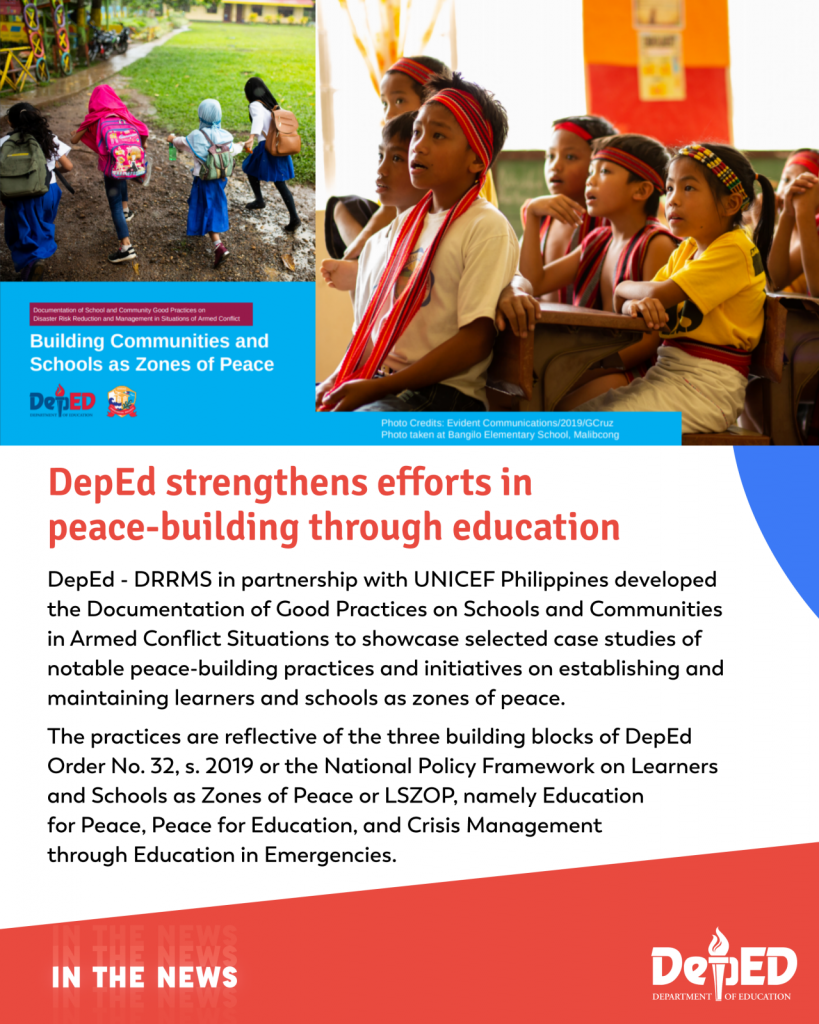 |
January 12, 2021 – As classes resume for School Year 2020-2021, the Department of Education (DepEd) continues building a culture of peace and resilience in conflict-affected and vulnerable communities to ensure learning continuity and to protect the learners and personnel’s rights, welfare, and neutrality during armed conflict situations.
Spearheaded by DepEd – Disaster Risk Reduction and Management Service (DRRMS) in partnership with UNICEF Philippines, the Documentation of Good Practices on Schools and Communities in Armed Conflict Situations was developed to showcase selected case studies of notable peace-building practices and initiatives on establishing and maintaining learners and schools as zones of peace.
“We are firm with our commitment to protect the rights and welfare of our learners through the issuance of the national policy framework on learners and schools as zones of peace. This policy ensures the creation of safe, inclusive, and conflict-sensitive learning environments,” Secretary Leonor Magtolis shared.
“Our children and our schools are not objects of attack nor zones of battle; but rather, they are instrumental in building and sustaining a culture of peace in our country,” Undersecretary for Administration Alain Del Pascua added.
The practices are reflective of the three building blocks of DepEd Order No. 32, s. 2019 or the National Policy Framework on Learners and Schools as Zones of Peace or LSZOP, namely (1) Education for Peace, (2) Peace for Education, and (3) Crisis Management through Education in Emergencies (EiE).
DRRMS Director Ronilda Co said that the crafting of the framework was heavily informed by actual experiences of how the schools and communities adapted and even flourished in the face of the realities and hardships of armed conflict.
Furthermore, the research presented measures to strengthen learning from the cases such as (1) supporting upstream work on the development of an evidence-based national policy framework and guidelines to protect schools and learners in conflict-affected areas, and (2) informing the downstream work on the integration of DRRM practices and peace-building in the professional development of school heads, teachers and education practitioners in specific school divisions and districts affected by armed conflict.
“We hope that this study contributes to making our schools safer, more secure, and child friendly. Educators, community members, parents, and students can work together towards a better world where all people live safely and free from fear,” UNICEF Philippines Representative Oyunsaikhan Dendevnorov ended.
END


